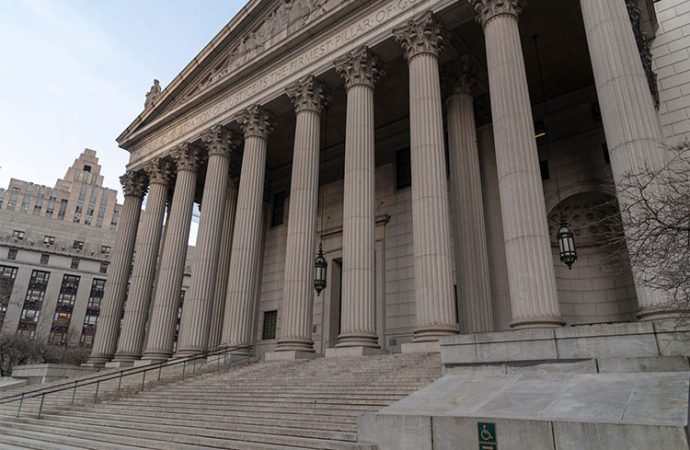Author Recent Posts Sumayya Shafique Latest posts by Sumayya Shafique (see all) Pakistan and TTA-Why expectations of Pakistan were not met? – August 25, 2023 Scope of Caretaker government and recent developments – August 10, 2023 Ensuring food security of Pakistan through agricultural mechanization and modernization – August 10, 2023
In Pakistan, the goal of caretaker administration is to ensure impartiality of the government in charge of monitoring elections and to lessen the opportunity for abuse or misuse of authority and government resources during election campaigns. The President nominates an impartial caretaker cabinet to oversee the election process and serve until the elected government takes the charge of the National Assembly (NA). Similar to this, prior to the commencement of provincial assembly elections, the governor chooses a caretaker ministry for the province. According to the Election Act of 2017, the caretaker administration is required to support the Election Commission in conducting the elections as well as maintain daily operations of the government.
According to section 230 (2) of the constitution, the interim government is also prohibited from signing or ratifying any international binding agreement, from engaging in major international negotiations with any foreign country or from making major policy decisions, except on urgent matters. The caretaker mechanism in Pakistan is now being viewed with increased skepticism since the caretaker governments in the Punjab and KP’s 90-day mandate was exceeded in April of this year, Contrary to Section 230 of the Elections Act of 2017, the two governments are not only carrying their day-to-day activities but also making long-term policy decisions.
The current coalition government has announced the dissolution of Parliament and handing over to caretaker government in the first half of August, 2023. However, there have been two recent events that have given the caretaker government a new direction. The first is that the Constitution is amended by the change to Section 230 of the Elections Act of 2017, which increased the powers of the appointed and unelected caretaker administration. The latter development relates to the suggestion that Senator Ishaq Dar, who serves as finance minister and is also a prominent PML-N leader and a close relative of Nawaz Sharif, be named acting prime minister.
First development commenced on July 25, when the Pakistani government proposed 54 reforms to the Election Act of 2017, including an increase in caretaker administration’s authority to make economic decisions on “urgent matters”. However, the government was compelled to postpone the Bill’s passage by a day when both the government’s allies and the opposition showed reservations on a last-minute amendment to the clause at the joint session of parliament. In accordance with the Public Private Partnership Authority Act of 2001, and the Privatization Commission Ordinance of 2000, the caretaker administration has given the authority to sign bilateral and multilateral agreements as well as jurisdiction over the projects that have already been initiated.
Many of the parliamentarians who opposed the proposed measures noted that they were not even brought up during the parliamentary committee on electoral reforms’ discussions behind closed doors. Therefore, the parliamentary committee met with the administration before the meeting on Wednesday (July 26) and was successful in persuading its partners with a slightly modified proposal. An administration with the authority to make swift decisions is necessary, given the current circumstances in which the nation is dealing with major economic problems, according to the key government stakeholders.
The International Monetary Fund (IMF) board approved a $3 billion, nine-month standby agreement earlier this month, which has since made it easier for bilateral donors to contribute. Invoking this agreement, the government argues that providing the caretaker administration more authority would assure the continuation of the IMF-approved measures because they could not be put on hold. Following this event, there has been speculation that the next caretaker government may last for more than 90 days, which also suggests that elections may be postponed.
The second recent development is appointment of Ishaq Dar as an integral part of caretaker set up, though it was an informal proposal because official proceedings won’t start until the National Assembly is dissolved. Due to his expertise and years of experience, Senator Dar may be more than competent to serve as prime minister, but his partisanship and tight ties to a single political party render him completely unable to serve as a caretaker PM.
Therefore, the critique against the additional powers granted to the caretaker governments is that they lack the legitimacy of elected governments, therefore giving them more authority than what the law originally intended would generate legal complications. Moreover, the establishment of a “neutral caretaker setup” was justified on the grounds that its authority would be constrained. Giving it additional power, particularly when it comes to economic matters, might unleash a Pandora’s box and exacerbate the nation’s political unrest. Going by the wisdom of the constitution may be the wise thing to do for any democratic administration if the constitution had specified a limited role for the caretaker government.
- Pakistan and TTA-Why expectations of Pakistan were not met? - August 25, 2023
- Scope of Caretaker government and recent developments - August 10, 2023
- Ensuring food security of Pakistan through agricultural mechanization and modernization - August 10, 2023












Leave a Comment
Your email address will not be published. Required fields are marked with *